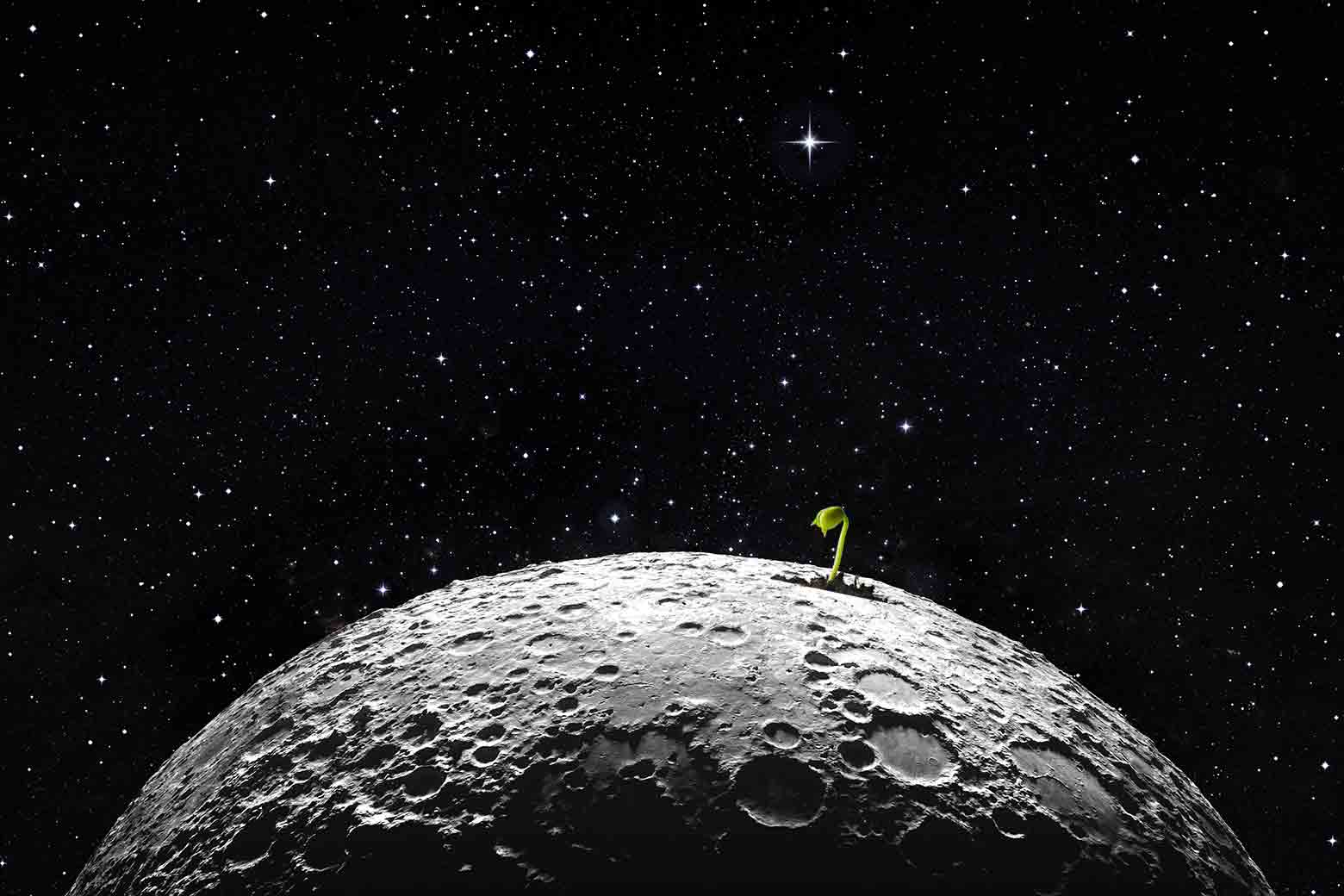In 2012, Newt Gingrich proposed a space program that would put a colony on the moon by 2021; that same year, startup Mars One announced its hope to get a little civilization up and running on Mars by 2023. More recently, Elon Musk published a paper on “making humans a multi-planetary species” and has tweeted that he would like a Martian home base by 2028.
One recent practical development in space news puts these plans into sharp perspective: China seems to have just grown the first plant ever on the moon. It’s a cotton seed shoot. It’s already dead!
The fact that we’re not adept at growing a renewable supply of food elsewhere is, of course, not the only issue with extraplanetary colonization—it is wildly expensive, geared toward rich people, and has been rightly criticized by Slate and others as pie-in-the-sky. But the first-ever moon plant is a good metaphor for just how pie-in-the-sky they are. The forefront of life outside of Earth is one teeny sprouty short-lived green thing.
The shoot is part of a mini-biosphere designed by scientists at Chongqing University in China. It arrived on a probe called Yutu two two weeks ago, and after temperatures dropped a couple days ago, it seems that everything in the canister froze, shutting the ecosystem down sooner than hoped.
Along with seeds, the scientists’ lunar terrarium contained fruit fly eggs, water, and air, which together were meant to “maintain an independent mini ecological cycle,” according to a June news release from the university announcing its plans. The experiment was designed to show how a plant-growing operation could do in low gravity and without the protection of Earth’s magnetic field. “This may serve as a basis for people to build ecological basis on the moon in the future,” said Xie Gengxin, who designed the experiment, in the release. It’s unclear what kind of insights the team will be able to extract from the now-dead plant, but space-enthusiastic politicians and the Elon Musks of the world would do well to note just how much more work there is to be done before we’re farming potatoes Mark-Watney-The-Martian-style.
In the meantime, what else will this mission do? According to Gengxin via that news release, inspire national pride and raise environmental awareness in China. Space travel often serves as an avatar of what we wish were possible, a potential solution to our earthly woes—but the reality is that it’s a branch of scientific research that’s hard and grueling and fails easily. On that note, the bitty-ecological-system’s camera has not yet provided us with evidence of how those fruit flies fared.
